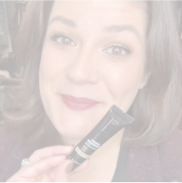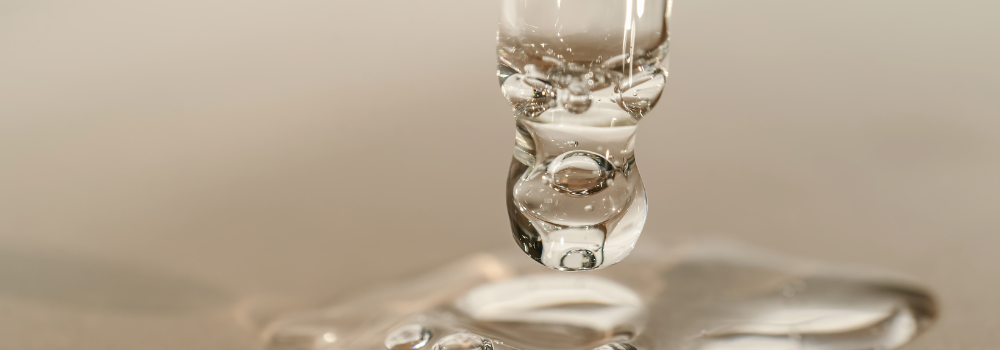Retinol, a form of vitamin A, is a widely used ingredient in skincare. It offers multiple advantages for mature skin, from enhancing elasticity to reducing the look of fine lines. Let's jump into the details, shall we?
What is Retinol?
Retinol is a form of vitamin A₁ that's fat-soluble and important for a variety of biological functions. It plays a role in vision, cellular development, the maintenance of skin and mucous membranes, immune function, and reproductive development. You can find this vitamin in foods like fish, dairy products, and meat.
What Are Retinoids?
Retinoids represent a category of compounds connected to vitamin A, either through derivation or because they share similar structural or functional characteristics. These compounds have garnered attention in both the cosmetic and dermatological fields for their positive impact on skin health. Specifically, retinoids can alleviate inflammation, open up clogged pores, minimize wrinkles, and regulate cell growth on the skin's surface. Beyond cosmetic uses, they are instrumental in treating various skin conditions such as acne, psoriasis, pigmentary disorders, and even specific types of cancer.
Retinoids vs. Retinols: What's the Difference?
While retinoids and retinol both originate from Vitamin A, they are not identical. The primary distinctions lie in their potency and the speed at which they yield results. Retinoids are the stronger of the two and generally require a prescription for use. These compounds contain a higher concentration of active ingredients and can stimulate quicker skin cell turnover compared to retinol. On the other hand, retinol is milder and accessible over the counter. It still offers many of the same benefits as retinoids but typically at a slower pace due to its lower concentration.
How Does Retinol Work?
When applied to the skin, retinol encourages cellular renewal. It stimulates collagen production, an essential protein that increases skin firmness and elasticity. As we age, collagen levels naturally decline, approximately 1% per year, starting in our 20s. Retinol helps counteract this decline, giving skin a more youthful appearance. Moreover, retinol minimizes dark spots by inhibiting the overproduction of melanin.
How Retinol and Retinoids Work
Retinol is an over-the-counter type of retinoid commonly used to enhance various aspects of skin quality, including tone, pigmentation, and texture. One of its primary actions is the stimulation of fibroblasts, which are cells that produce collagen fibers. By doing this, retinol enhances the skin's elasticity. Additionally, retinol promotes angiogenesis, the formation of new blood vessels, which contributes to overall skin health. It also plays a role in melanin distribution, helping to reduce skin discoloration.
How to Use Retinol
Application Guidelines
Start with a thin layer applied to the face, steering clear of more sensitive areas. Optimal time for application is at night due to retinol's light sensitivity. Use a pea-sized amount, and be sure to avoid applying retinol in the morning as it can make your skin more susceptible to sun damage. Initially, use retinol every other day, increasing the frequency as your skin becomes more accustomed to it.
Combining with Moisturizer
To reduce the likelihood of dryness or flaking—common side effects, especially during the initial weeks—it's a good idea to combine retinol with your regular face moisturizer, like the Fièra Apple Stem Cell Cream. Apply your moisturizer first, then layer the retinol on top. Keeping an eye out for skin reactions is key.
When to Expect Results
Anticipate a waiting period before seeing tangible results. Consistent use over approximately 12 weeks is generally advised to evaluate the effectiveness of the product. The benefits can continue to improve for up to six months.
Precautions and Risks
Sun Sensitivity
After applying retinol, your skin will be more prone to sun damage. Thus, using sunscreen and wearing protective clothing are advised steps to take post-application.
Consult a Dermatologist
Those with specific skin conditions, like eczema or rosacea, and pregnant women should seek a dermatologist's guidance before incorporating retinol into their skincare routine.
Strength and Formulation
It's advisable to start with a milder formulation of retinol to reduce the risk of irritation. Different brands have different retinol compounds, which can make the percentage of retinol indicated on the label less reliable in assessing strength.
Retinol Purge
Some individuals, particularly those with acne, might initially experience a worsening of their skin condition. This period, known as a retinol purge, can vary in duration among individuals but usually resolves as the skin begins to improve.
Ingredients to Avoid
Combining retinol with certain other skincare ingredients like benzoyl peroxide and alpha and beta hydroxy acids can either deactivate retinol or make your skin more sensitive. A consultation with a dermatologist or skincare professional is advisable to ensure a safe routine.
Fièra Cosmetics with Retinol
Fièra Cosmetics offers several products that contain retinol alternatives, specifically Bakuchiol, which is a plant-based compound that provides similar benefits to retinol without the associated irritation.
- Fièra Bakuchiol Rejuvenating Facial Treatment: This product is designed for mature skin and aims to reduce signs of aging and revitalize the complexion. It contains plant-derived Bakuchiol, squalane, and licorice root to smooth the appearance of lines and wrinkles and visibly brighten the skin/
- Fièra Bakuchiol Firming Eye Cream: This eye cream is also a plant-based retinol alternative specifically formulated for mature skin. It aims to reduce wrinkles and fine lines for a youthful gaze.
- Fièra Bakuchiol Set: This set includes the Fièra Bakuchiol Firming Eye Cream and the Fièra Bakuchiol Rejuvenating Facial Treatment. It has been scientifically formulated with plant-based Bakuchiol to provide the visible skin-smoothing and brightening effects of retinol without irritation, peeling, and sun sensitivity.
These products are designed to be gentle on the skin, providing the benefits of retinol without the common side effects such as irritation and sun sensitivity. They are suitable for mature skin and are designed to improve skin tone, texture, and firmness, as well as reduce the appearance of wrinkles and fine lines.
Is Bakuchiol a Good Retinol Alternative?
If you're searching for a different option from retinol, Bakuchiol might catch your interest. This compound originates from the seeds and leaves of the Psoralea corylifolia plant, more commonly known as babchi. This herb has been a part of traditional Ayurvedic and Chinese medicine for centuries. Bakuchiol has been promoted as a 'natural retinol alternative' because it offers similar cosmetic benefits to retinol, such as improving skin elasticity and reducing signs of aging.
However, it's essential to understand the limits of Bakuchiol as an alternative. Although research indicates it might be milder on the skin compared to retinol, they are chemically distinct. Bakuchiol's effectiveness is considered close to that of over-the-counter retinol, potentially offering fewer side effects.
Summary
Retinol, a vitamin A₁ derivative, is a powerful tool in the mature skincare arsenal. Its benefits range from boosting collagen production to evening out skin tone. Proper application and patience are key to maximizing its benefits.
However, it's important to note that some precautions should be considered, including increased sun sensitivity and potential interactions with other skincare products. Always consider consulting with a dermatologist to tailor your skincare routine to your individual needs.
Fièra is committed to providing the best anti-aging skincare products for mature skin
Want to empower yourself with resources to look and feel better? Read more articles on our blog.


